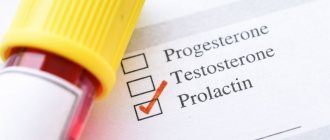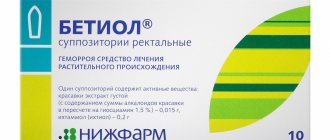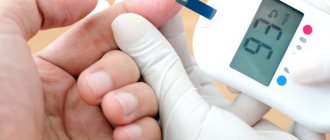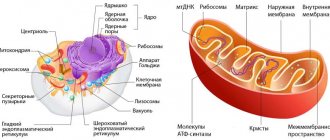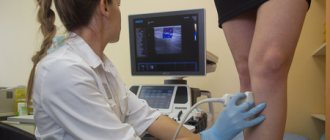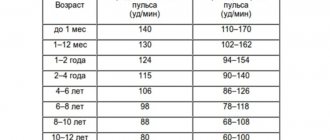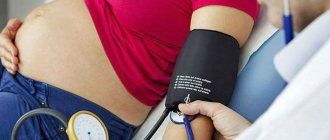Preparing for the study
During the initial check of thyroid hormone levels, you should discontinue medications that affect thyroid function 2-4 weeks before the test (after consultation with your doctor).
When monitoring treatment, exclude taking medications on the day of the study and be sure to note this on the referral form (also note information about taking other medications - aspirin, tranquilizers, corticosteroids, oral contraceptives). GENERAL RULES FOR PREPARATION FOR RESEARCH:
1. For most studies, it is recommended to donate blood in the morning, from 8 to 11 o’clock, on an empty stomach (at least 8 hours must pass between the last meal and blood collection, you can drink water as usual), on the eve of the study, a light dinner with a restriction eating fatty foods. For tests for infections and emergency studies, it is acceptable to donate blood 4-6 hours after the last meal.
2. ATTENTION! Special preparation rules for a number of tests: strictly on an empty stomach, after a 12-14 hour fast, you should donate blood for gastrin-17, lipid profile (total cholesterol, HDL cholesterol, LDL cholesterol, VLDL cholesterol, triglycerides, lipoprotein (a), apolipo-protene A1, apolipoprotein B); The glucose tolerance test is performed in the morning on an empty stomach after 12-16 hours of fasting.
3. On the eve of the study (within 24 hours), avoid alcohol, intense physical activity, and taking medications (in consultation with your doctor).
4. 1-2 hours before donating blood, refrain from smoking, do not drink juice, tea, coffee, you can drink still water. Avoid physical stress (running, quickly climbing stairs), emotional excitement. It is recommended to rest and calm down 15 minutes before donating blood.
5. You should not donate blood for laboratory testing immediately after physiotherapeutic procedures, instrumental examination, X-ray and ultrasound examinations, massage and other medical procedures.
6. When monitoring laboratory parameters over time, it is recommended to conduct repeated tests under the same conditions - in the same laboratory, donate blood at the same time of day, etc.
7. Blood for research must be donated before starting to take medications or no earlier than 10–14 days after they are discontinued. To assess the control of the effectiveness of treatment with any drugs, a study should be conducted 7-14 days after the last dose of the drug.
If you are taking medications, be sure to notify your doctor.
Indications
Data on the level of triiodothyronine are used for differential (comparative) diagnosis of thyroid diseases, as well as for monitoring the hyperthyroid state (excessive production of endocrine hormones).
In addition, a general T3 test is a mandatory part of screening (comprehensive examination for hormones) of the thyroid gland in the following cases:
- dysfunction of the thyroid gland or pituitary gland;
- sudden change in body weight without established reasons;
- increased tendency to tissue swelling;
- menstrual cycle disorders in women;
- painful menstruation;
- pronounced symptoms of PMS.
With nodular toxic, diffuse goiter, as well as thyroid adenoma, formations may appear that additionally produce triiodothyronine, which leads to T3 toxicosis. In this case, the hormone level is analyzed to assess the effectiveness of the treatment.
Contraindications and restrictions
Factors influencing research results
A decrease in the concentration of triiodothyronine is facilitated by the use of amiodarone, anabolic steroids, androgens, dexamethasone, propranolol, salicylates, coumarin derivatives, antithyroid drugs, aspirin, atenolol, carbamazepine, cimetidine, furosemide, lithium preparations, theophylline. An increase in triiodothyronine concentration can be caused by taking estrogens, contraceptives, methadone, amiodarone (rarely), clofibrate, tamoxifen, phenothiazines, terbutaline, valproic acid, lithium preparations, antithyroid drugs, rifampicin. Falsely elevated values of triiodothyronine can be observed during pregnancy, myeloma, and also in severe liver diseases (due to an increase in the concentration of thyroxine-binding globulin in the blood plasma).
Normal for T3 general
When deciphering the results of the study, you need to take into account the fact that the equipment, reagents and standards of each laboratory may differ radically. In this regard, it is advisable to carry out diagnosis and treatment in the same medical institution.
Reference values for total T3
| Patient gender | Age | Total T3 indicator, nmol/liter |
| Female Male | 4 days – 12 months | 1,3 – 6,3 |
| Female Male | 1 – 12 years | 1,74 – 2,91 |
| Female Male | 12 – 15 years | 1,5 – 2,71 |
| Woman | 15 – 17 years old | 1,44 – 2,15 |
| Man | 15 – 17 years old | 1,45 – 2,39 |
| Female Male | 17 – 19 years old | 1,59 – 2,08 |
| Female Male | >19 years old | 0,89 – 2,44 |
Note:
the interpretation of the results is carried out exclusively by a specialist. In this case, the individual characteristics of the patient, medical history and the results of other studies are taken into account.
Factors that can distort the result
- Taking T3-increasing drugs: estrogens, tamoxifen, methadone, clofibrate, lithium drugs;
- Taking T3-lowering drugs: anabolics, androgens, aspirin, atenolol, amiodarone, cimetidine, furosemide;
- Pregnancy (increases performance);
- Myeloma (increases performance);
- Liver damage and dysfunction (increases indicators);
- Old age (low triiodothyronine levels are considered normal);
- Severe somatic diseases (low T3 syndrome with normal T4 levels).
Summing up
A blood test for T3 is prescribed by the attending physician if a disorder of the thyroid gland or endocrine system is suspected. Such diagnostics are quite complex, so it is extremely important to properly prepare for it, since even the slightest deviation can lead to false results. Such an analysis must be carried out in specialized laboratories where there is advanced modern equipment that will eliminate various inaccuracies.
More fresh and relevant information about health on our Telegram channel. Subscribe: https://t.me/foodandhealthru
We will be grateful if you use the buttons:
Total T3 is elevated
A high concentration of the hormone in the blood indicates various forms of thyrotoxicosis, which is accompanied by a fairly clear clinical picture:
- increased nervousness, aggression, frustration, emotional instability;
- sleep disorders (insomnia, frequent awakenings);
- severe fatigue, loss of strength;
- trembling of fingers, hands (tremor);
- arrhythmia (irregular heartbeat), extrasystole (additional myocardial contractions);
- rapid heart rate (tachycardia);
- sudden and causeless weight loss;
- frequent urge to urinate;
- indigestion (diarrhea);
- fever (rare);
- menstrual irregularities;
- enlargement of the mammary glands in male patients.
An increase in total T3 concentration against the background of normal levels of other thyroid hormones is considered a false positive result.
A true excess of the norm indicates the following pathologies:
- Graves' disease (an autoimmune disease that leads to poisoning of one's own thyroid hormones);
- isolated T-thyrotoxicosis or TSH-independent thyrotoxicosis;
- hyperthyroidism;
- thyroiditis (inflammation of the thyroid gland of an autoimmune nature);
- dysfunction of the thyroid gland after childbirth;
- thyroid adenoma;
- nephrotic syndrome (kidney damage accompanied by increased tissue swelling);
- resistance to thyroid hormones;
- Pendred syndrome (genetically caused enlargement of the thyroid gland).
What is the T3 hormone responsible for?
T3 hormone is a thyroid hormone and is the more active of the two main hormones. You can find another name for it – triiodothyronine. The presence of the number three in the definition of a hormone is explained by the fact that each of its molecules contains exactly that amount of iodine.
T3 is formed as a result of the breakdown of another hormone - T4, when one iodine atom is split off from it. The process that occurs after the splitting of an atom can be compared to the process of removing the pin from a grenade. The transformed, previously sedentary T4, having transformed into triiodoitrine, becomes very active.
Its purpose is to control the energy metabolic processes occurring in the human body. The hormone influences the breakdown of energy and sends it to where it is needed. Once in the bloodstream into the cells of the child’s brain, the hormone promotes its rapid development. Thanks to the work of triiodothyronine, nerve conduction is enhanced in an adult.
Triiodothyronine is important for the cardiac system and bone tissue, as it helps activate metabolism in them. General nervous excitability increases under the influence of triiodothyronine.
- Signs of elevated T3 levels
- Difficulties in conducting analysis
Total T3 below normal
As a rule, a reduced level of total T3 is observed when the secretory function of the thyroid gland is impaired, when a decrease in the concentration of other endocrine hormones is recorded. In this case, patients note the following symptoms:
- fatigue, lethargy, drowsiness, weakness of muscles and ligaments (low energy potential);
- causeless numbness of the arms and legs;
- convulsive syndrome;
- digestive disorders (nausea and vomiting, constipation, lack of appetite);
- increased swelling of tissues (including the facial area);
- violation of potency;
- low body temperature (loss of strength).
A similar clinic can be observed in the following conditions:
- Hashimoto's thyroiditis is an autoimmune process accompanied by the death of thyroid cells and disruption or complete loss of its secretory function;
- toxic goiter (nodular, diffuse, etc.) – when treating the disease with special drugs, there is a high chance of developing hypothyroidism. Also, the concentration of T3 decreases during treatment with radioactive iodine;
- surgery on the thyroid gland (complete or partial removal);
- thyroid insufficiency, which leads first to a decrease in the concentration of the hormone T4, and then T3;
- thyroiditis (subacute and acute form);
- decreased secretion of thyroxine-binding globulin;
- kidney dysfunction, renal failure;
- cirrhosis of the liver;
- anorexia (nervous form);
- nutritional disorders (fasting, low-protein diet);
- acute iodine deficiency in the body;
- preeclampsia and eclampsia (a form of late toxicosis with critically elevated blood pressure and convulsions);
- rehabilitation period after suffering serious illnesses.
Based on the medical history and existing symptoms, the doctor writes a referral for a total triiodothyronine test. An endocrinologist or diagnostician interprets the results.
T3 hormone test
When determining pathological conditions of the thyroid gland, the endocrinologist necessarily sends the patient to take tests for three hormones - T4, TSH, T3. Testing for the latter type of hormone is extremely important, as it allows minimizing diagnostic error.
For example, with nodular toxic goiter, very often independently working nodes are engaged in the reproduction of the T3 hormone. Its amount also increases in diffuse toxic goiter, Graves' disease and Graves' disease. If the analysis produces a result that shows a significant increase in triiodothyronine, then doctors talk about T3 toxicosis. This condition is difficult to correct with drugs and manifests itself with more vivid symptoms than those found with an increase in the amount of the T4 hormone.
T3 hormone is free and total - what is the difference?
A certain amount of triiodothyronine can be produced by gland cells in an already “ready” state, that is, with 3 iodine atoms. Once in the bloodstream, it communicates with transporter protein molecules. The hormone is transported through the vessels to the tissues that need it. But a small amount of triiodothyronine remains in the blood, unbound to protein molecules. This triiodothyronine is called “free T3 hormone.”
The hormone that remains free in combination with the one that is bound to proteins is defined as the total hormone T3. It is its quantity that is often indicative of questionable results of tests for free hormone, which are carried out to determine thyroid dysfunction in humans.
[Video] Doctor MD Mikhail Yurievich Bolgov, a surgeon of the highest category, will explain the difference between the total and free hormone T3. The features of its action and use in diseases of the thyroid gland are highlighted:
Which one to take - general or free?
The doctor decides which test is best. You can get a referral for it from a therapist, pediatrician or endocrinologist. The form will necessarily indicate the type of hormone.
Donating blood to check the level of free T3 is necessary for diseases of the thyroid gland, or to determine the effectiveness of hormonal therapy. An assessment of total T3 levels is required when diagnosing hypothyroidism or thyrotoxicosis. However, the best option is to take both tests.
